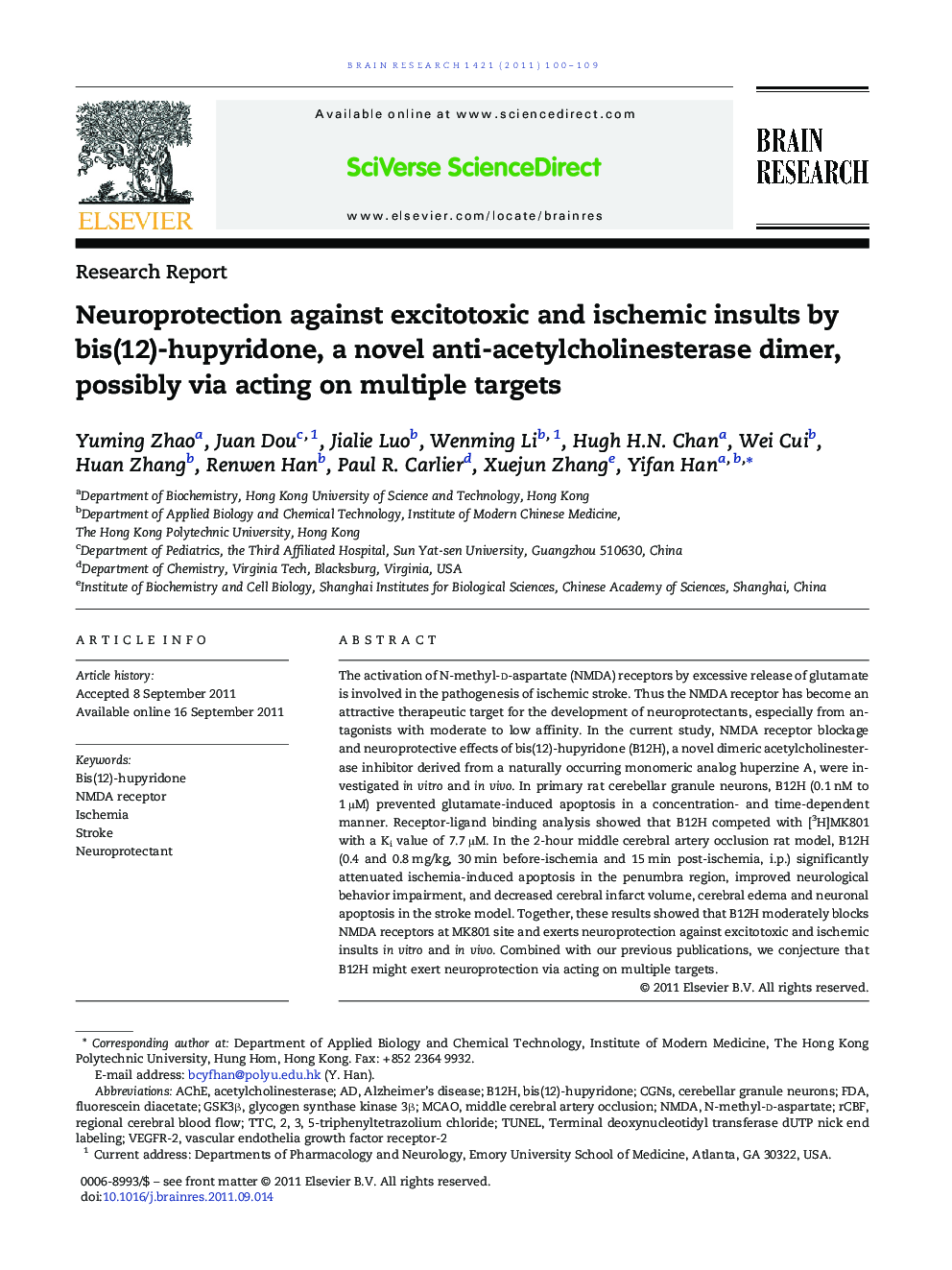| Article ID | Journal | Published Year | Pages | File Type |
|---|---|---|---|---|
| 6264701 | Brain Research | 2011 | 10 Pages |
The activation of N-methyl-d-aspartate (NMDA) receptors by excessive release of glutamate is involved in the pathogenesis of ischemic stroke. Thus the NMDA receptor has become an attractive therapeutic target for the development of neuroprotectants, especially from antagonists with moderate to low affinity. In the current study, NMDA receptor blockage and neuroprotective effects of bis(12)-hupyridone (B12H), a novel dimeric acetylcholinesterase inhibitor derived from a naturally occurring monomeric analog huperzine A, were investigated in vitro and in vivo. In primary rat cerebellar granule neurons, B12H (0.1 nM to 1 μM) prevented glutamate-induced apoptosis in a concentration- and time-dependent manner. Receptor-ligand binding analysis showed that B12H competed with [3H]MK801 with a Ki value of 7.7 μM. In the 2-hour middle cerebral artery occlusion rat model, B12H (0.4 and 0.8 mg/kg, 30 min before-ischemia and 15 min post-ischemia, i.p.) significantly attenuated ischemia-induced apoptosis in the penumbra region, improved neurological behavior impairment, and decreased cerebral infarct volume, cerebral edema and neuronal apoptosis in the stroke model. Together, these results showed that B12H moderately blocks NMDA receptors at MK801 site and exerts neuroprotection against excitotoxic and ischemic insults in vitro and in vivo. Combined with our previous publications, we conjecture that B12H might exert neuroprotection via acting on multiple targets.
⺠Bis(12)-hupyridone directly blocks NMDA receptor with moderate affinity ⺠Bis(12)-hupyridone prevents glutamate-induced neuronal apoptosis in CGNs ⺠Bis(12)-hupyridone ameliorates MCAO-induced focal cerebral ischemic impairments
